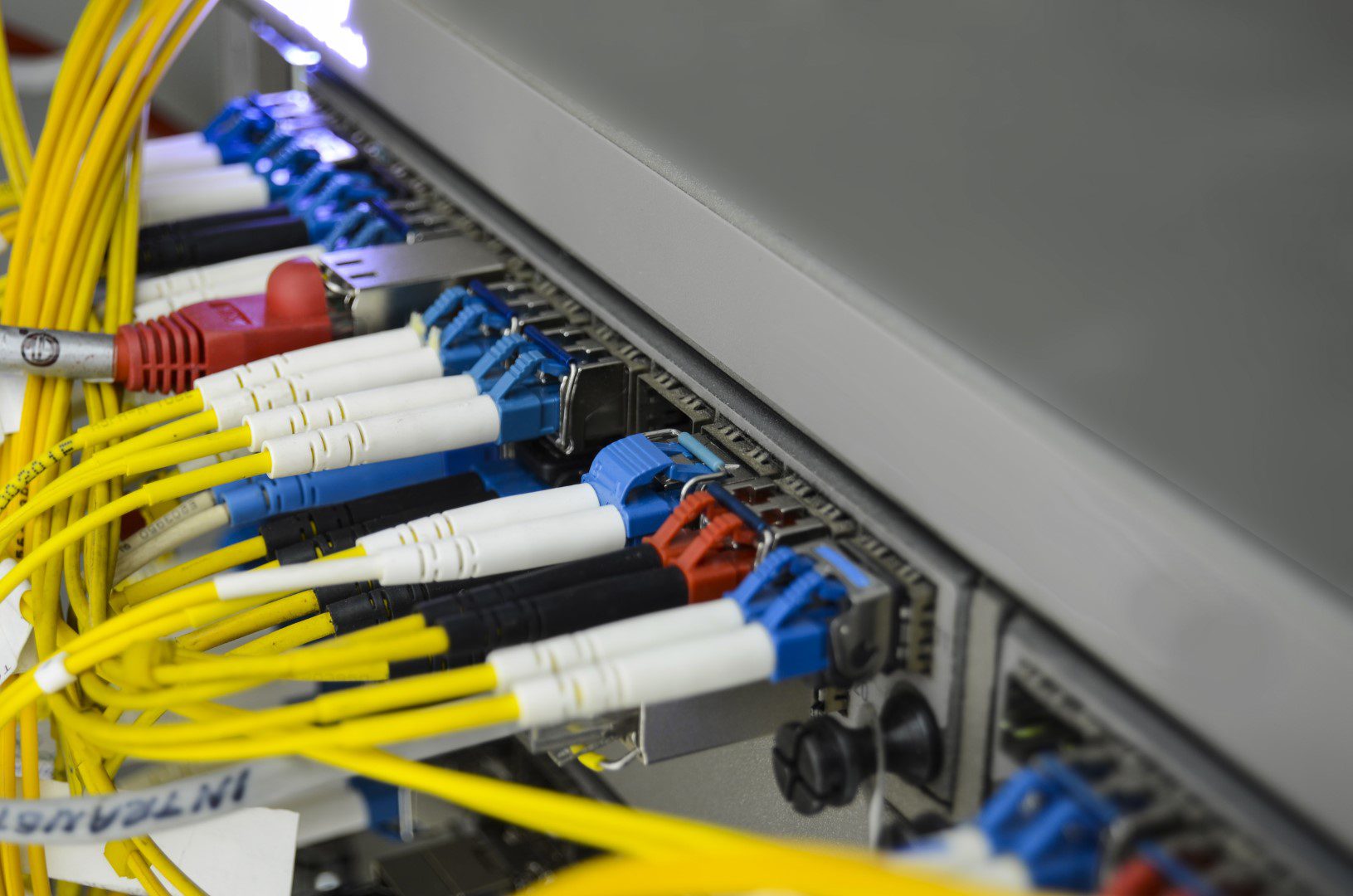Starting at speeds of 40Mbps and scaling up to 1000Mbps or 1Gbps, our FTTP solution ensures high-speed, reliable internet tailored to meet the evolving technological demands of today. Contact Juno Telecoms to check the availability and potential speeds of FTTP in your area

Do you ever get frustrated by slow internet and your broadband services? Perhaps FTTP or a business fibre to the premises connection could be the answer to your challenge?
There are many reasons why your internet connection might appear slow. It could be an issue with your router, Wi-Fi signal, signal strength on your phone line, devices on your network saturating bandwidth, or even a slow DNS (Domain Name System) server.
There are many business quality fibre broadband connections available on the market today and technology is moving fast to accommodate our ever-changing technological demands.
Whether you are looking for a solution for your home, or for your business, broadband service does not get much better than FTTP ultrafast full fibre broadband. Starting at 40Mbps, speeds can scale to 1000Mbps or 1Gbps with a pure fibre solution. talk with Juno Telecoms and they will run the FTTP checker to identify potential speeds in your area.

Business Fibre to the Premises, or Fibre to the Property (FTTP) broadband is a pure fibre optic delivery method that provides ultrafast broadband access directly to a user from an internet service provider (ISP). It replaces the traditional and often outdated copper broadband connections used in ADSL/ADSL2+, by running a fibre connection all the way from your local exchange to your home or business. Instead of using existing copper wires for the ‘last mile’ of access, it completely bypasses the copper wires, and it connects with a pure fibre optic cable all the way from the exchange to the premises, promising superfast broadband. FTTP network upload and download speeds in the UK surpass older technologies.
Fibre optic cables are designed to carry light. Because this delivery method uses pulses of light (literally travelling at the speed of light), the download speeds, and the overall performance of this service remains unaffected by distance and demand. This means that you get consistently faster and more reliable internet connection at all times, as it’s no longer subject to poor quality copper lines which gave rise to signal loss, jitter and packet loss.
Voice, video and data is delivered over the fibre via pulses of light, reaching speeds of up to an impressive 330 Mbps.
FTTP is sometimes also referred to as FTTH (Fibre-to-the-Home). They are essentially the same thing, but FTTP is used as an umbrella term, which includes both non-residential and residential premises.

Phone networks are still used to deliver broadband services over copper lines, and ADSL (Asymmetric Digital Subscriber Line) continues to be a popular solution because it is low cost and the infrastructure is present and widely available.
ADSL connections can provide both standard and high-speed broadband — the latter being achieved through an improved version of the technology known as ADSL2+. However, as the signal is carried across phone lines, the distance of the end user from the local telephone exchange can affect the quality and speed of the connection, and therefore making ADSL broadband not the most reliable option. FTTP will provide much faster, and more stable business internet connections.
Fibre optic is the best broadband connection available on the market, and FTTP (Fibre-to-the-Premises), and FTTC (Fibre-to-the-Cabinet) are the two main types currently available in the UK.
Whilst FTTP broadband is a pure fibre optic delivery method that promises super-fast delivery into people’s homes and businesses directly from an Internet Service Provider (ISP), Fibre-to-the-Cabinet (FTTC) is a blend of copper and fibre optic cables.
FTTC uses optical cables right up to the street cabinet, and then an existing copper telephone line, known as a PSTN (Public Switched Telephone Network), to connect the cabinet to your premises, be it your home or your business. Because of the copper/fibre optic blend, FTTC is less expensive to install and is often used as a cheaper substitute to the more expensive FTTP pure fibre connections.
Both FTTC and FTTP promise high speeds, and they are both faster than the conventional ADSL connections. However, because of the rollout of fibre optic delivery, FTTP delivers much faster UK speeds but can be slightly pricier.
FTTC broadband is the most common setup for broadband in the UK. It makes use of existing street cabinets and infrastructure, alleviating the need to dig up any roads in established areas, and making it widely available in the UK. All of this, makes Fibre-to-the-Cabinet a more economical and more accessible option for homes and businesses alike.
Although FTTC is less expensive to install, it is important to note that it was not built for the long term and its potential bandwidth is limited. Because it still uses inefficient copper cables in its delivery, speeds are far lower than full fibre optic connections.
FTTP on the other hand has been built to be expanded on and improved over time, making it a worthwhile investment for businesses that are internet critical.
In terms of availability FTTC can be easily found for most residential premises, while FTTP is typically available for businesses and new builds.
How fast your business broadband needs to be will depend on what your business does. A small business may not need their internet to be as fast as one which has large offices with dozens of employees, computers and phones that all need to perform at the highest level. The type of broadband you go for will impact the speed of your internet too, so if you need a super speedy connection, you may require fibre optic internet, SOGEA, or an Ethernet connection, rather than ADSL.
Business broadband customers can benefit from high levels of support. If something goes wrong with your communications, you need to know you have someone there to support you. You also need reassurance that if there is a problem, your provider will do their utmost to get things back up and running as quickly as possible. With Juno Telecoms, you will receive the very best customer service. We are just a phone call away for those of you that want excellent support from a company that cares.
For any business, security is vital. Security threats to a network can come from a wide range of areas, including viruses, malware, phishing scams, infected files/USB drives, and hackers. Broadband packages are created to help give you the best security possible and protect you against as many threats as possible. Should you suffer a security breach or threat, our team of experts is on hand to get your systems back up and running.
Whether you're a burgeoning startup or an established corporation, we are equipped to provide the robust, scalable internet solutions your business requires. Slow or unreliable internet should not be a barrier to your business's progress. Reach out to us at Juno Telecoms today, and let us show you how we can enhance your business's online presence and capabilities.

To get everyone connected directly to pure fibre broadband would be a very costly process, but FTTC (Fibre-to-the-Cabinet) offers a cost-effective way of providing homes and businesses the speed and stability benefits of Fibre Broadband.
It is important to note that with Fibre-to-the-Cabinet, your business does not benefit from a dedicated connection. Therefore, if your business is internet critical, in other words, if your business heavily relies on robust data connectivity and sensitive data handling, Fibre-to-the-Cabinet (FTTC) may not be the ideal choice for you.
Although FTTC broadband has strong merits, it is not built for the long haul. It is a contended service, which means that you will be sharing the fibre bandwidth with all the other users who are connected to the same cabinet. Because of this, you may notice significant peak time fluctuations in your broadband connection. The likelihood is that the first customers to be connected to the FTTC cabinet will benefit from superfast speeds, however, it is to be expected that the more customers are connected to the same cabinet, the quicker these speeds will decrease for all users.
Fibre-to-the-Cabinet (FTTC) uses very high frequencies to transmit the broadband, and at these high frequencies, customers may notice something called copper cable crosstalk. This is a phenomenon by which a signal transmitted on one pair of copper cables or one channel, creates an undesired effect on another pair or channel.
And finally, this service is not covered by a Service Level Agreement (SLA). An SLA is a contract between the service provider and the end user that defines the level of service expected from the service provider, should anything go wrong, giving customers complete peace of mind over guaranteed uptime, quick service restoration, and 24/7 service monitoring.

Fibre optic cables are designed to carry light. Because this delivery method uses pulses of light (literally travelling at the speed of light), the speed and performance is unaffected by distance, resulting in super fast broadband.
Anyone who runs their own business, which is internet critical, or far large families and serious gamers, FTTP is an ideal solution, as it lets you operate several different devices at once, and it is super-reliable compared to standard ADSL broadband.
With an FTTP network there is less chance that the internet will go down during a crucial point and it is a fully reliable dedicated service. Furthermore, a pure fibre connected building can handle a far greater volume of simultaneous users. A full fibre network offers greater physical resilience versus a network that includes copper-wire transmission. FTTP can also effectively future-proof organisations that anticipate growth.
However, there is the question of availability. Full fibre optic connections are still very limited within the UK. Check with Juno for FTTP providers in your area.
All in all, a fibre connection to your business will provide improved levels of stability, as well as both upload and download speeds to surpass FTTC and ADSL. You will also need to confirm with your Internet Provider whether an FTTP connection is currently available in your area. Call Juno Telecoms and ask them to put your post code through their broadband checker, to find out if Openreach fibre is available yet. If you want to determine your current broadband speeds are a good place to start is here.
Fibre optic broadband is being deployed around the UK by multiple fibre network operators, and while it’s not available to every business, the vast majority of premises do already have fibre broadband.
Faster and more reliable fibre is coming to your area soon. FTTP Fibre is our fastest technology, but your dates will depend on FTTP providers rolling it out to your post code.
Check with your internet provider to check if you can upgrade to FTTP. Fibre to the Premises increases broadband speeds significantly. Contact Juno Telecoms to run your address through their FTTP checker.
Our FTTP solution prices range, it all depends on the type of usage that you need. At Juno Telecoms we have a range of business deals and packages available for you to choose from.
This will depend on how close the fibre cable is to your premises, if an ONT already exists at your premises, it’s very quick to get connected. If not it may require a site survey.
Gain insights from our latest blog posts. These articles are packed with expert tips and updates in telecommunications to help you stay ahead.
For general enquiries, please contact us using the details below, or fill out the enquiry form.










We specialise in enhancing business connectivity with cutting-edge technology and personalised services, ensuring your business stays connected.
Company No: 04952400
Are you looking for a new website? Contact Outrank Today
